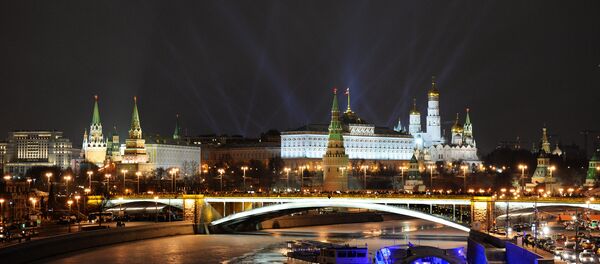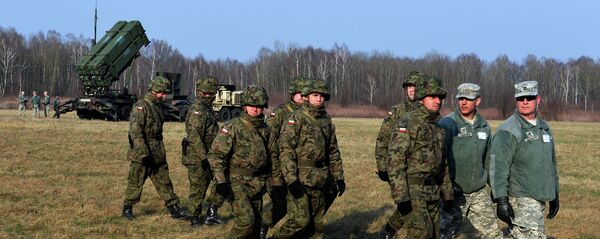Nothing hinted at any trouble in July 2015, when Financial Times finally admitted that the Kremlin is obviously not planning to rebuild the Russian or Soviet Empire in "a literal sense" anytime soon.
"A piece published by the Financial Times last July admitted that the 'consensus' among diplomats and analysts was that Putin had 'not embarked on a rampage' to recreate an empire 'as some feared last year'," Danielle Ryan, an Irish freelance journalist and media analyst, narrates in her article for RT.
"Given that new-found consensus, one might have suspected that the lull in stories about a forthcoming invasion could be chalked up to journalists deciding to put the subject to rest — but one would have been wrong. For they were back last week with a vengeance," she continues.
Ryan calls attention to the fact that a month ago, the Atlantic Council — "whose primary founding aim is to defend NATO interests" — began to bang the drums over Russia's imaginary imperial designs for the Baltic states.
"Most anxieties focus on the Baltic states as Russia's next potential military target," Stephen Blank, a Senior Fellow at the American Foreign Policy Council, warned.
"The piece was then re-published by Newsweek with the headline: 'Counting down to a Russian invasion of the Baltics'," Ryan points out.
It's almost as if these guys would just love Russia to invade the Baltics for a bit of excitement, isn't it? pic.twitter.com/lt9Q2JbvAQ
— Danielle Ryan (@DanielleRyanJ) 4 февраля 2016
So, what was the root cause of the propaganda campaign?
According to the journalist the answer is obvious: on February 2, US Defense Secretary Ashton Carter announced that the Pentagon would seek to quadruple its budget for Europe in 2017. The pretext for the increase is a "military threat" posed by Russia to Central and Eastern Europe.
"This happens every time the Pentagon wants more money to play with. Various 'studies' about the danger posed by whichever bad guy is in fashion start appearing. Experts suddenly realize that the US military is drastically underfunded in said area of immediate strategic importance. Officials begin making even more outlandish statements than usual. And the media eat it up, apparently completely unaware of the fact that they are being taken for a ride," Ryan underscores.
"So what would Russia gain from attacking the Baltics?" Doug Bandow, a former special assistant to President Ronald Reagan, asked in his op-ed for The National Interest, commenting on the RAND report.
"[Russia would gain] a recalcitrant, majority non-ethnic Russian population. A possible temporary nationalist surge at home. A likely short-lived victory over the West. The costs would be far greater. Grabbing the Baltics likely would spur population exodus and trigger economic collapse," Bandow stressed, highlighting the absurdity of the assumption.
Unfortunately, the voice of reason is being silenced.
Edward Lucas 2014: This could be the start of WW3!
— Danielle Ryan (@DanielleRyanJ) 6 февраля 2016
Edward Lucas 2015: Putin using 'hysterical' WW3 arguments! pic.twitter.com/bI2kGvqrUd
"We need to understand more and condemn less," Kent University Professor Richard Sakwa wrote in his letter to the Guardian last week, as quoted by Ryan. The academic argued that constant "demonization" of Russia would only deteriorate the current state of affairs.
"We note with alarm that public discourse about Russia is colored by militaristic and dangerous terms which may talk us into war. The country's portrayal as an aggressive power increases its perception of threat, accelerating a military and ideological escalation. Irresponsible talk of conflict is risky and mistaken," Sakwa underscored.
However, his letter remains largely unnoticed placed in the 'Letters' section, while leading articles continue to fan the flames.




